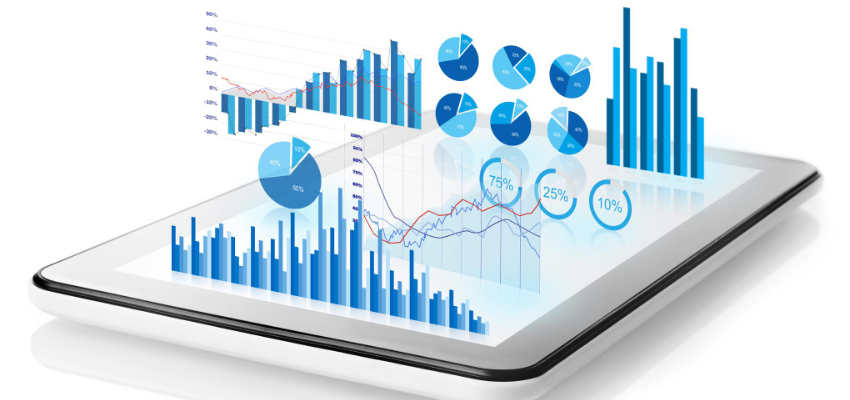Show:
8 Essential Financial Tools Every Digital Entrepreneur Must Know About
If you plan on using the far and wide reach of the internet to kickstart and grow your businesses, you should first make sure you have all the essential tools in your financial tool belt.
Nowadays, you can choose between a plethora of financial tools that are amazing at keeping track of expenses, monitoring your cash flow, designing realistic budgets, and much more. So, if you’re ready to leave the good old spreadsheets behind and step into the era of smart tools, here are a few essentials you shouldn’t ignore.

1. Budgeting Tools
Good budgeting is the cornerstone of any thriving business. However, spreadsheets (the traditional, go-to budgeting tool) don’t always give you the overall view a graph or a chart can. Plus, some of the most advanced budgeting tools can help you see the impact of each financial decision you make.
Budgeting tools’s main benefits are:
- Clarity – you get a clear picture of where your money is going, which helps you make smarter decisions.
- Time-saving – the tool automates the tedious parts of managing finances, like categorizing expenses or calculating totals.
- Stress reduction – you have more control over your financial future when you know where your money goes. This way, you can set the basis for a business even if you’re on a budget.
The good news is that you can find a bunch of simple apps that track income and spending without too much hassle (great for solopreneurs just starting out). Also, if you’re running a more complex business, there are more advanced systems that offer real-time data analysis.
2. Intuitive Accounting Software
Even if you’re a solopreneur, you have to keep track of your expenses and income sources. You need this data to plan your growth, but also for tax purposes. This is where a well-designed accounting software tool comes in.
You need an accounting software tool that helps you streamline the financial process by cutting down on manual entry (also helps keep errors at bay). Also, once all your financial data is in one place, you should be able to generate reports that help with forecasting and spotting trends.
Lastly, your accounting tool will help you stay on top of regulatory requirements with features designed for tax preparation and audit trails. A good example of such a tool is QuickBooks Online or Wave (free), but there are others, so make sure to do your research.
3. Payment Gateway Platforms
A payment gateway platform is akin to a digital cash register of your online storefront or service portal. They are the middlemen ensuring digital money gets from your customers’ wallets to yours safely.
Since money is one of the most tempting assets to have, you need a reliable getaway that encrypts sensitive info and makes sure a buyer’s credit card data doesn’t end up in sketchy hands. This doesn’t just protect your accounts and business growth projections but also takes care of your brand’s credibility. Customers are more likely to trust their purchase will be secure if they recognize the payment method.
Here are a few pointers to keep in mind when choosing the best payment gateway for your business:
- Simplicity and User Experience – the checkout experience should be quick and seamless. If a customer has to jump through hoops to pay you, there’s a chance they’ll bail before completing the transaction.
- Security – robust encryption standards like SSL and compliance with industry security protocols (think PCI DSS) should top your checklist.
- Compatibility – your gateway must play nice with your website or accounting software.
- Global Reach and Currency Support – if you’re looking beyond local markets, pick something that speaks multiple currency languages and can handle international payments.
4. Free-to-use Business Credit Cards
Free-to-use business credit cards are just what they sound like – credit cards that don’t charge you an annual fee for the privilege of using them. They’re a popular choice among entrepreneurs and businesses keen on keeping overheads low.
The best free-to-use business credit card solution also comes with a bunch of impressive benefits, like cash back, points, or travel miles (varies from one solution to another). Plus, they can help build or improve your business’s credit score when used responsibly.
However, make sure to always check the fine print because sometimes these cards can have higher interest rates or other fees. To get a better idea of what works for you, do your research and make a free-to-use business credit card comparison.

5. Crisp e-Commerce Platforms
E-commerce platforms serve as virtual storefronts where entrepreneurs can display and sell their goods or services. These platforms are fundamental because they give you the infrastructure needed to conduct business online without the need for a physical presence.
Plus, the right e-commerce platform lets you tap into a global market, accessible 24/7 to anyone with internet access. They also come equipped with tools for inventory management, payment processing, and more (integrated into one system). Lastly, they help create a seamless customer experience from browsing to checkout, which is key in converting sales and building loyalty.
Depending on your needs, you can choose between well-established platforms like Shopify, WooCommerce, BigCommerce, or Squarespace (to name a few).
6. Painless Payroll Processors
Payroll processors are like your trusty sidekicks when it comes to handling the nitty-gritty of compensating your team. The deal is, managing payroll isn’t just cutting checks – there’s a whole lot more involved, from taxes to benefits, and doing it manually can be akin to navigating a minefield blindfolded.
The right payroll processor automates what would otherwise be super time-consuming tasks, ensuring your hours are better spent on growing the business. Plus, payroll services stay up-to-date with taxes and regulations, so you don’t have to. Furthermore, these tools reduce mistakes that could cost you both employee goodwill and real money.
7. Expense Reporting Apps
Tracking and managing business expenses gets more complex and challenging as your business grows. And yet, you need a clear picture of where your money is going and why.
Luckily, you can use one of these specially designed apps to make the whole expense management process more efficient. You also reduce the risk of misplacing paper receipts and other important documents since everything is stored in digital format.
Some of these apps also offer a dashboard view of your spending patterns, which will come in handy when preparing the budget. Also, come tax time, having your ducks in a row with categorized expenses can mean less stress and potential savings through deductions.
8. Investment Tracking Tools
For those who’ve got their fingers in investment pies (stocks, crypto, alpaca farms, and so on), tracking tools are the perfect way to keep a close watch on what happens with your money. When you’re knee-deep in running your business, these tools shoulder the load of monitoring how your investments perform.
Besides the time-saving and monitoring benefits, the right investment tracking tool also feeds you accurate information so you can make smarter calls about when to buy more, sell off, or rejig your investment portfolio.
Look for tools that can track various types of investments, like stocks, bonds, real estate, crypto, and so on. And make sure your app has real-time alerts about significant changes or opportunities. This way, you’re always in the loop, even when swamped with other business tasks.
Wrap Up
From budgeting apps that bring clarity and ease to complex financial planning to robust accounting software keeping track of every dime, the right financial tools are essential for your entrepreneurial success.
Keep in mind that each tool you choose to use is a cog in the well-oiled machine of your business. So, choose wisely and build a resilient foundation for your digital empire!

 Return to Previous Page
Return to Previous Page








